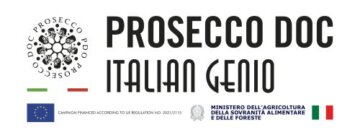02/04/2025
The Culinary Wonder of Eastern Europe – Three Cookbook reviews by Antonia Lloyd to Whet your Appetite
The cuisine of Eastern Europe is, increasingly, receiving the recognition it deserves thanks to passionate cooks and authors eager to share their ancestry, culinary traditions and love for this biodiverse landscape. Several cookbooks published this spring – Alissa Timoshkina’s Kapusta, Irina Georgescu’s Danube, and Caroline Eden’s Green Mountains out this April – have caught the eye of our Ambassador of Women In the Food Industry and Writer, Antonia Lloyd, because they shine a light on its diverse peoples, their stories and the eclectic heritage of their food.
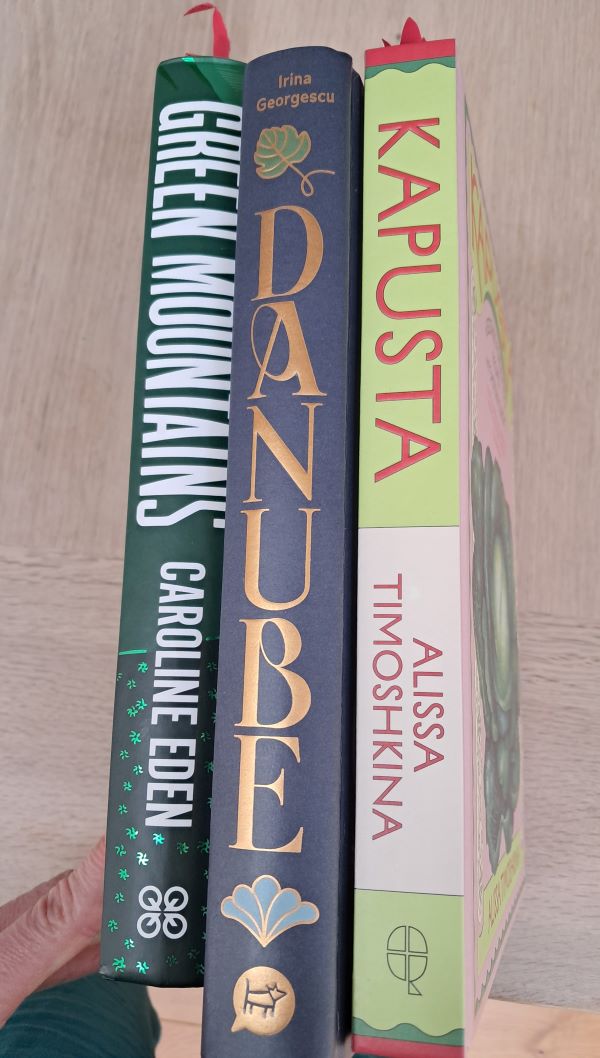
In addition, the region’s authentic approach to humble eating that has fermentation in its DNA and leans heavily on the seasons also shows up Western cooking that has sometimes lacked with its issues of food waste. In contrast to the region’s political turmoil and shadow of the war in Ukraine acknowledged in these books’ introductions, they offer a connected vision of simple, nutrient-rich eating and resourcefulness in the kitchen that is utterly inspiring.
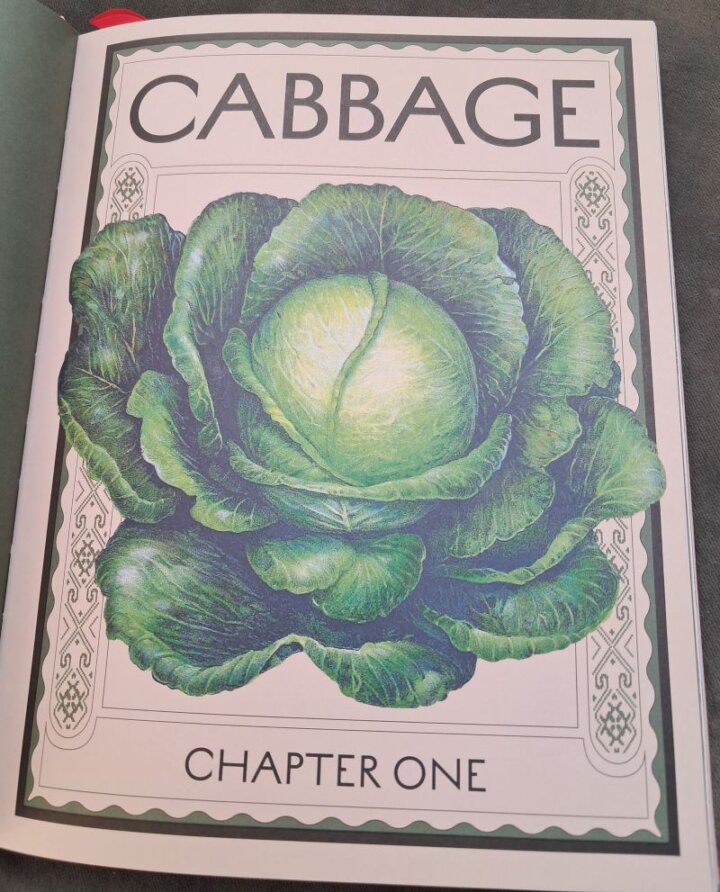
There’s Alissa Timoshkina’s veg-centric approach in Kapusta which flips fully on its head the stereotype of Soviet style boiled cabbage (that Orwell references the smell of in full dystopian horror in 1984) and embraces the top five most popular vegetables in Eastern Europe starting with the magnificent cabbage, then beetroot, potato, carrot and mushrooms. With low-cost, seasonal dishes, scattered with fresh herbs and the occasional bit of meat, there are dumplings of all shapes and sizes, soups and stews with grains, cabbage rolls galore, and the flavour of smoky paprika, nutty caraway and coriander seeds adding extra warmth and depth.
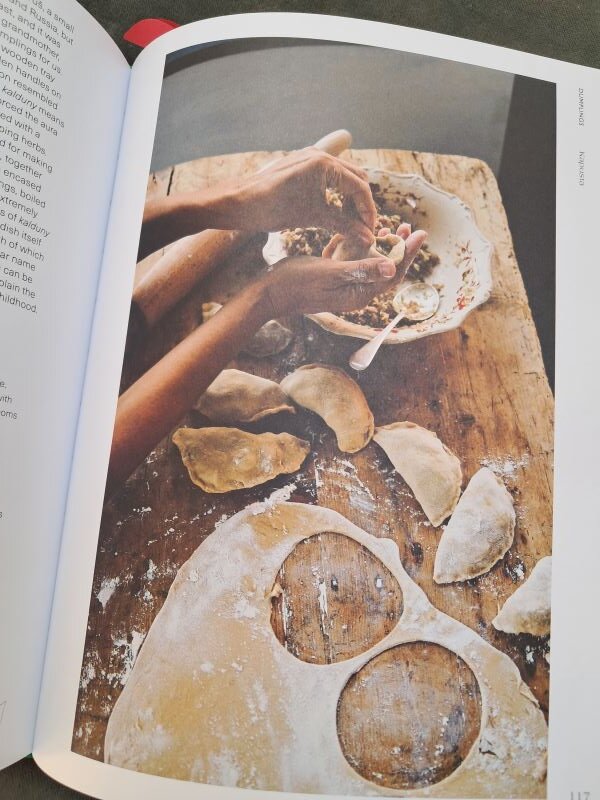
Alissa is originally from Siberia with a Ukrainian-Jewish lineage and many of us will remember how she launched the #cookforukraine campaign which has raised over £2.5million for Ukraine. Her thought-provoking introduction references living in a post 24/02/22 world where she will limit references to Russia, avoid the umbrella term ‘Russian cuisine’ but ‘give a voice to the indigenous ethnic groups residing in the Eastern European part of the country such as the Volga Tatars and Udmurts’. Alissa’s recipes are brilliantly researched and always pinpoint the precise origin of each dish, enticing me at every turn. There are classic piroshki buns that are made with leavened dough and filled with caramelised, still slightly crunchy cabbage, dill and egg, and then fried for a crisp finish.
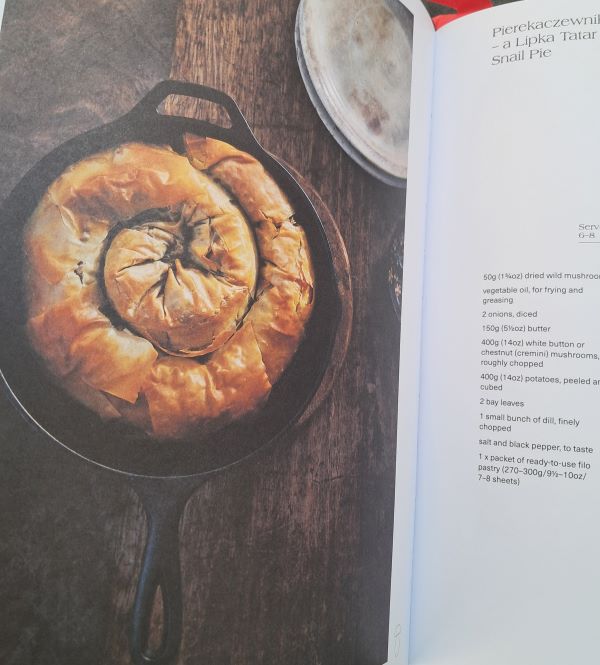
We are treated to a whole range of plump pies such as knishes or Askenazi buns from the diaspora of Ukraine, Belarus and Poland, that boast flaky buttery pastry filled with mashed potato and chives, a Romani cabbage and chestnut pie, Crimean Tatar Chiboreki that she fills with cumin, carrots, and lentils, and a Lipka Tatar snail filo pie stuffed with wild and fresh mushrooms. There are sweet recipes too – the Tzimmes carrot cake that I tested was a beautiful blend of sweet carrots, prunes, apricots, the bite of walnuts and warming hit of ginger and cinnamon –we most certainly grabbed the sour cream and tucked in. It’s not just the dishes but her respect for the people that delights me.

In Danube, Irina Georgescu focuses on the lands of the river Danube as it meanders eastwards between Romania, Serbia and Bulgaria which are some of Eastern Europe’s most ethnically diverse regions. Irina is from Romania where the cuisine is a blend of Central European and Balkan influences and has a historic link to Ancient Rome – the empire conquered the southern lands of Oltenia in the 2nd Century AD. Like the ancient Romans, Romanians still add vinegar to soups, are addicted to lovage and parsley and bake Oltenian ashen bread in earthenware pots as they did in Pompeii and Rome.
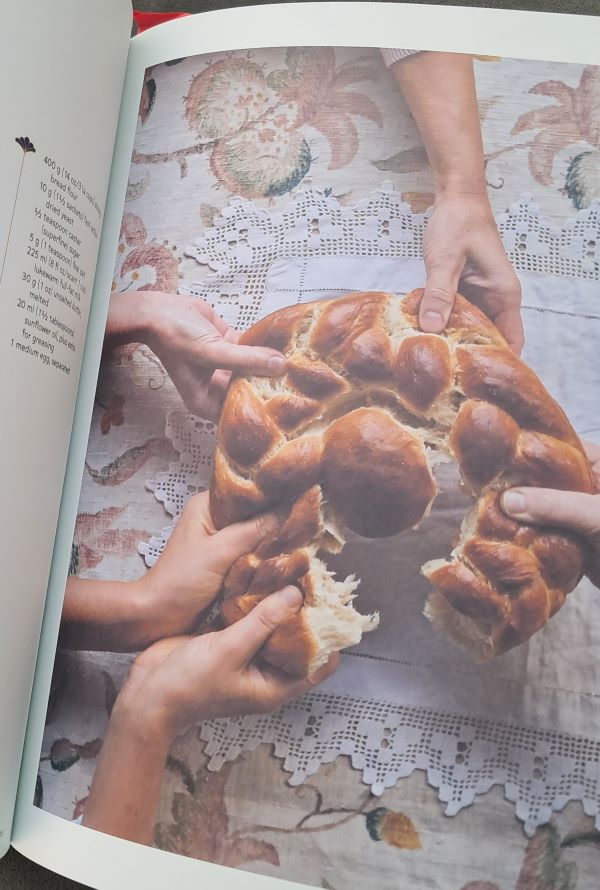
Irina sets out to show us how people eat at home, introducing us to diverse communities such as the Romanian Czechs in the Banat with their yeasted pancakes with poppy seeds and Eibenthal potato pancakes with horseradish, Slavic people of the Iron Gates region whose braided svinita festive bread is baked for the annual Praznic festival, the Dobrogean Tatars with their suberec pastries with minced lamb, dumplings and lacsa noodles; and the Turkic people of Dobrogea making baklava stuffed with walnuts and drenched in lemon syrup. She gives us comfort food that is easy to prepare: ‘This is my mantra for the recipes: quick and bold, just like the people along the Danube’ while never shying away from the complex stories of power and conquest that brought these ethnically diverse communities and their culinary traditions to these river lands.
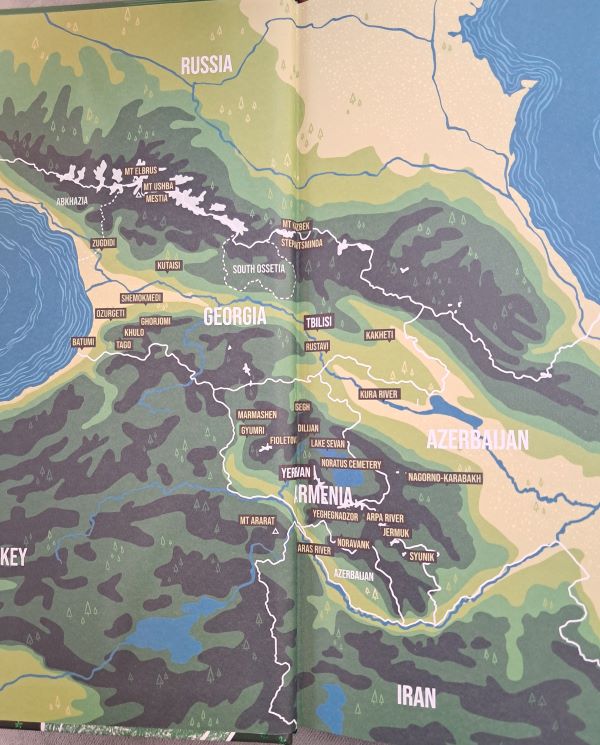
A geographical food journey that jumps off the page is Caroline Eden’s Green Mountains the third in her trilogy after Black Sea and Red Sands, which focuses on the South Caucasus, beginning in Armenia and moving northwards up to Georgia before ending on the Black Sea. This brings the story of this less familiar Eastern European region into great clarity with its uncertain political turmoil being offset by her life-affirming walking and eating with its local communities. Caroline transports the reader to Armenia and Georgia capturing the smells, sights and tastes as she wanders mountain valleys, towns and coastline and truly proves that: ‘literally no meal can compete with what is served to you after a long walk’.
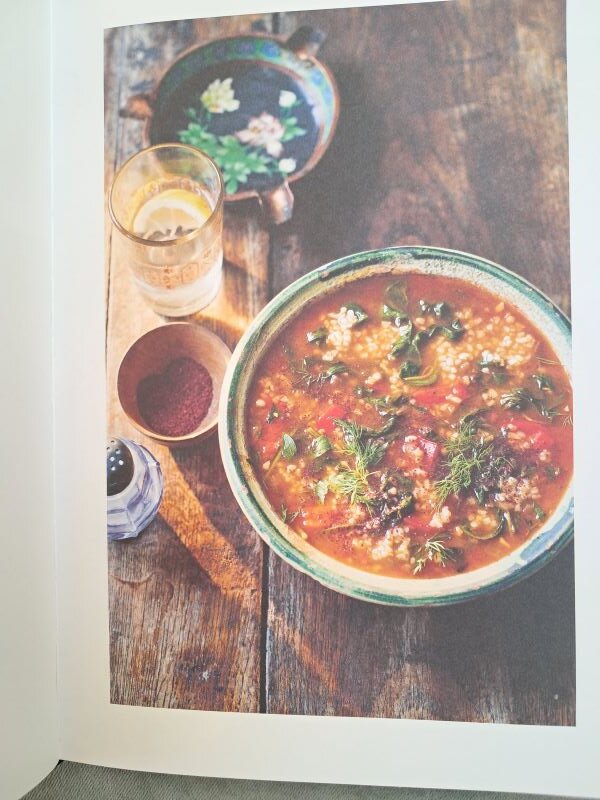
We set off with Caroline through Armenia’s mountain country of Vayots Dzor with the promise of extraordinary vistas that will require serious exertion to reach, and the weight of the heat and fear of snakes hanging heavy. We feel ourselves lifted by her picnic of ‘parsley, dill and tarragon enclosed in thin lavash with brined cheese, roast potatoes and stubby cucumbers’ before drama strikes. She and her husband James are caught by an intense lightning storm that surprises them in its savagery and Biblical feel, forcing them to lie flat on the ground at one point. Their safe return to Mary’s Green Stone Guesthouse for a comforting bowl of kitchen garden soup with bulgur, summery green leaves, soft herbs, sweet paprika and lemon juice lifts us entirely and we share Caroline’s relief. Unlike other cookbooks, this book reminds us of the beauty of cooking and eating to sate a proper hunger.
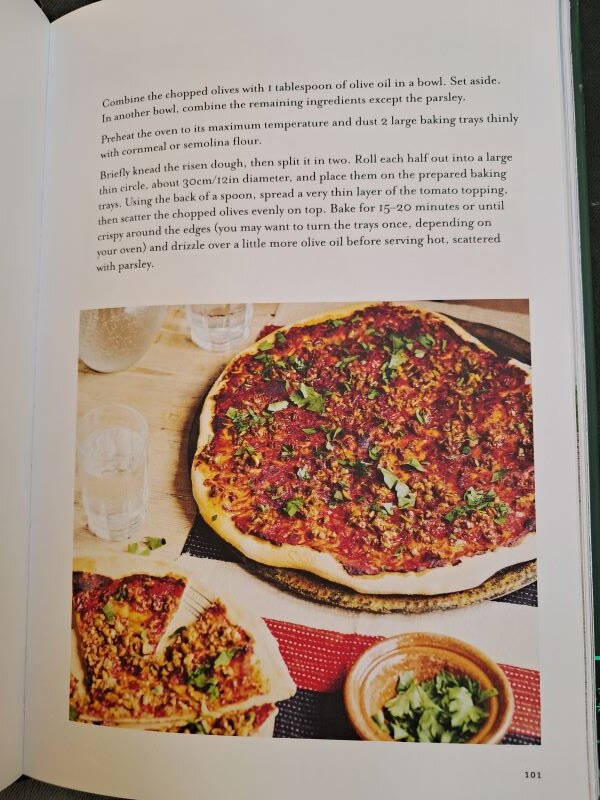
Caroline has created a ‘crop of edible postcards’ to share her food memories as a home cook with us and the simplicity shines through. We fall in love with Armenian apricots handed to her by locals of which there are 50 varieties. A Transcaucasian trail mix made up of hazelnuts, cashews, seeds, dried fruits, dark chocolate pieces and a dusting of aromatic nutmeg is created from the pick of the bazaars. There are summertime salads of toasted walnut, sliced apple and orange segments and grape and tarragon with feta. We are introduced to a beautiful ‘gata’, a bread-like cake that is linked to the Geghard Monastery in Armenia stuffed with a nubbly paste of walnuts, apricots and seeds. For anyone looking for a revived cycle of walking, eating, and discovery, this book offers that and more – stories aplenty, real people and produce, and a reconnection with the land.
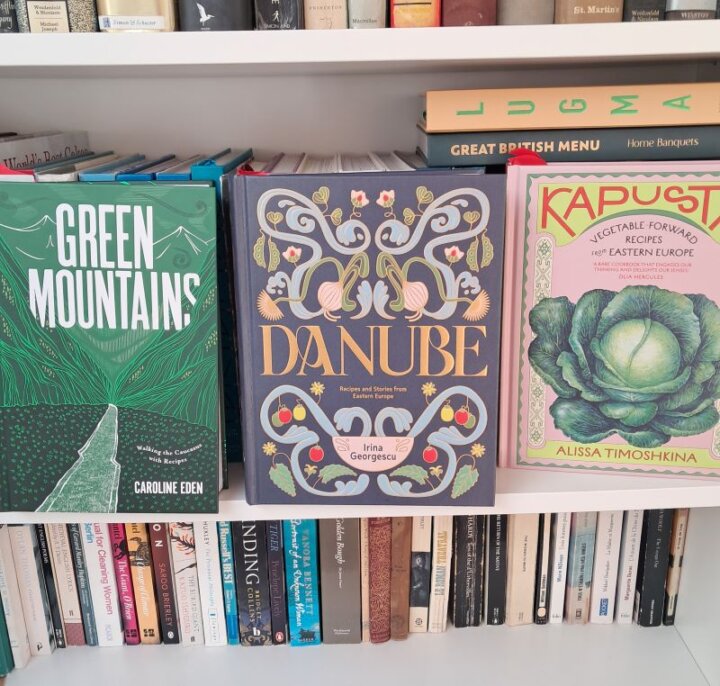
The cookbook genre is ever-growing bringing more than just recipes into our lives. These three truly illuminate the diversity, breadth, and eating potential the food across Eastern Europe offers, bringing us culinary wonder and invitation for discovery on every page.
Caroline Eden’s Green Mountains is out on 3rd April 2025 – published by Quadrille. Alissa Timoshkina’s Kapusta, and Irina Georgescu’s Danube, were published by Hardie Grant
You may also like to read Antonia’s cookbook reviews of Lugma by Noor Murad, Elly Wentworth at The Angel of Dartmouth, Cooking with Anna by Anna Haugh, Easy Wins by Anna Jones, and her review of Plant Feasts by Frankie Paz, You may also enjoy our review of the new Great British Menu cookbook: Home Banquets, our review of Dip In Brilliant by Dipna Anand & interview with Dipna, our review of Recipes for a Better Menopause by Jane Baxter & Dr Federica Amati and our book review of Modern South Asian Kitchen by Sabrina Gidda.









